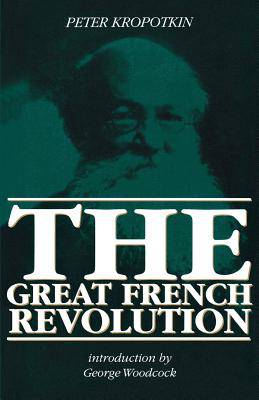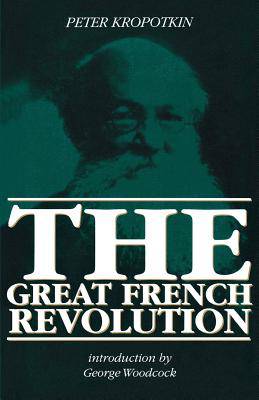
- Afhalen na 1 uur in een winkel met voorraad
- Gratis thuislevering in België vanaf € 30
- Ruim aanbod met 7 miljoen producten
- Afhalen na 1 uur in een winkel met voorraad
- Gratis thuislevering in België vanaf € 30
- Ruim aanbod met 7 miljoen producten
Zoeken
€ 72,95
+ 145 punten
Uitvoering
Omschrijving
With the international celebrations of the French Revolution as background, the publication of Peter Kropotkin's classic with an introduction by George Woodcock represents the fulfilment of an important documentary need. The turbulent upheaval that swept in the first mighty revolution in the West, and which had such far ranging consequences, has subsequently been described by a thousand differing pens. From the King's summoning of the Estates General in 1789 to the establishment of the Directory in 1793, the revolution has had many interpretations. But Kropotkin is among the very few who analyses this drama not only as a complex interplay of its leading personalities or a chain of political decisions made from above; rather, he penetrates this surface confusion to describe a great reordering of the economic bases of the ancien régime by the mass of urban workers and the peasantry. He saw the redistribution of land impeded at every step by an aggrandising middle class and by the forces of the counter-revolution inside and outside France. Kropotkin, as a true historian, was not concerned with merely the period he discussed. He saw it as a climax in a long past and future development. The result is a very skillful and absorbing book, with great momentum, an active and readable style, and a capable use of a mass of details regarding the most obscure but no less important aspects of the French Revolution. First published in 1909 and long out of print, The Great French Revolution is the finest historical writing from the fluent pen of Peter Kropotkin (1842-1921). The introduction by George Woodcock, the celebrated Canadian author, throws a modern light on the significance and scope of Kropotkin's contribution.
Specificaties
Betrokkenen
- Auteur(s):
- Uitgeverij:
Inhoud
- Aantal bladzijden:
- 630
- Taal:
- Engels
- Reeks:
Eigenschappen
- Productcode (EAN):
- 9780921689386
- Verschijningsdatum:
- 1/04/1989
- Uitvoering:
- Paperback
- Formaat:
- Trade paperback (VS)
- Afmetingen:
- 140 mm x 216 mm
- Gewicht:
- 807 g

Alleen bij Standaard Boekhandel
+ 145 punten op je klantenkaart van Standaard Boekhandel
Beoordelingen
We publiceren alleen reviews die voldoen aan de voorwaarden voor reviews. Bekijk onze voorwaarden voor reviews.











